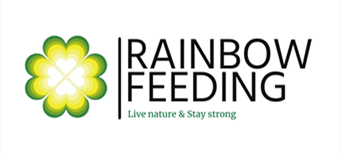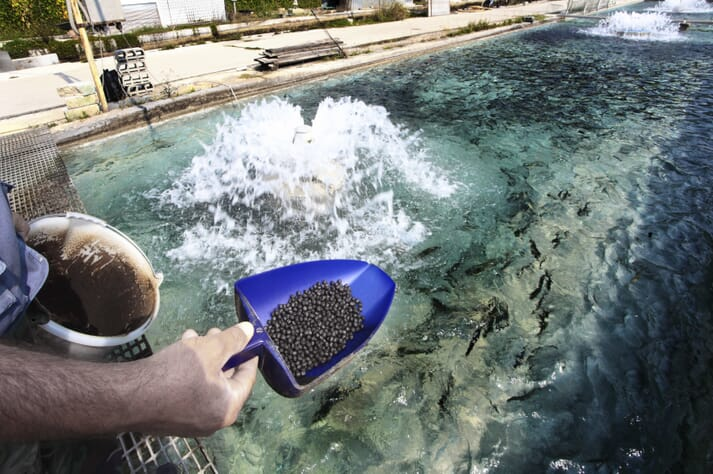Why is Oregano Essential Oil(OEO) Essential For Aquaculture?
Oregano essential oil(OEO) has been a popular ingredient in various culinary dishes. Its uses in animal nutrition include enhancing meat and poultry quality, as well as preventing spoilage. In addition, it can be used as a supplement to enhance performance in laying hens, broilers, and pigs. In aquaculture industry, the long-term or irrational use of chemical pesticides and antibiotics will lead to increased drug resistance of pathogenic organisms, and drug residues also indirectly threaten human health. As a feed additive for aquatic animals, OEO has little research on growth promotion and disease resistance, and its mechanism is still to be improved. This paper describes the effects of OEO on the growth, bacteriostasis and antioxidant of aquatic animals. If you’re interested, read on.
What’s Oregano essential oil(OEO)?
Oregano is a perennial herb or semi-shrub of the labiaceae family native to the Mediterranean, Europe and other regions. In Mediterranean countries, oregano has been used as a natural food flavor. It can be used as a food seasoning to enhance the pungency of alcoholic beverages or spices, as well as to relieve summer heat, reduce fever, relieve pain, stop vomiting, and stop diarrhea.
Originally produced in Spain, OEO is a volatile essential oil derived from oregano. It is usually yellow or brownish-red and has a pungent aroma. Oregano essential oil is insoluble in glycerin and water, but soluble in ethanol and propylene glycol. There are many extraction methods for oregano essential oil, including microwave-assisted extraction, steam distillation extraction, supercritical fluid extraction, etc. The content of OEO varies with the extraction technology and plant species, and most of the main components are carvechol, thymol, gamma-terpene and p-isopropyltoluene. OEO has strong antibacterial activity. Its active ingredients can penetrate the cell membrane and cause pathogenic microorganisms to die from water imbalance. It can also promote intestinal epithelial cell renewal and improve growth performance and feed utilization.
The benefits of Oregano oil
Antibacterial and bacteriostatic
OEO contains a large number of phenolic monoterpenoids, such as carvol, parasteine, and thymol. OEO contains carvacrol and thymol, two structurally similar components. Both compounds were tested in a series of in vitro experiments. Carvacrol showed positive results on a variety of bacteria. Similarly, thymol was found to be effective against Candida fungal infections. Additionally, oregano EO was found to have a strong bactericidal effect on Lactobacilli, which is an important type of bacteria. Carvavol and thymol can destroy cell wall, change the permeability of cell membrane, change enzyme activity, inhibit a variety of physiological metabolism, so as to achieve antibacterial effect. A use of pseudomonas aeruginosa (Pseudomonasaeruginosa) PA01 or methicillin-resistant staphylococcus aureus (methicillin – resistantStaphylococcusaureus) USA300 third-degree burns wound infection studies have shown that Topical application of oregano essential oil 24h after inoculation significantly reduced the bacterial load in the wound without significant side effects on the skin. Govaris et al. showed that oregano essential oil can effectively inhibit gram-positive bacteria, gram-negative bacteria, mold and yeast, and has the characteristics of green, environmental protection, non-toxicity and no residue.
When Dutra et al. studied the bacteriostatic effect of OEO on Bacillus aliacyclic acid, they found that carvacrol in oregano essential oil had a good inhibitory effect on the Bacillus. Marilia et al. found that with respect to Salmonellatyphimurium, the concentration of oregano essential oil at 5% was the most effective when it came to inhibition of salmonellatyphimurium.
In aquaculture, OEO can also promote the increase of intestinal villi of fish, improve the structure of intestinal flora, promote the absorption of intestinal nutrients, inhibit the growth of pathogenic microorganisms, and improve disease resistance. Gracia-Valenzuela et al. found that the addition of oregano essential oil containing different proportions of thymol and carvavol (48%∶23%, 25%∶40%) in the basic diet of penaeus shrimp could effectively inhibit the growth of three vibrio vulnificus, Vibrio parahaemolyticus and Vibrio cholerae in the tissue of penaeus shrimp.
Antioxidation
The antioxidant effect of OEO and its monomer compounds is mainly due to its reducing ability, free radical scavenging ability and singlet oxygen quenching ability, which depends on the presence of carvall and thymol. Kulisic et al. used β-carotene bleaching (BCB) method, 1, 1-diphenyl-2-trinitrophenylhydrazide (DPPH) method and thiobarbituric acid (TBARS) method to confirm that oregano essential oil has significant antioxidant properties, and the antioxidant effect is due to the presence of thymol and carvall. Kavoosi et al. found that thymol and carvavol could significantly reduce the production of NO and the activities of nitric oxide synthase and NADH oxidase in mouse macrophages stimulated by LPS.
Oregano oil can not only enhance the antioxidant capacity of aquatic animals, but also delay the spoilage of aquatic products and prolong the storage time of aquatic products. Cyprinus carpio var was supplemented with 0.025%, 0.050% and 0.100% oregano essential oil in the basal diet. The results showed that the activities of catalase and superoxide dismutase in serum of Cyprinus carpio were significantly increased, while the content of malondialdehyde was significantly decreased after the addition of oregano essential oil. These results indicated that oregano essential oil could significantly enhance the antioxidant capacity of serum and reduce lipid peroxidation in fish. Mexis et al. coated rainbow trout fillets with 0.4% oregano essential oil, and the study showed that the oxidation degree of rainbow trout fillets was significantly reduced, and the shelf life was extended for 3 ~ 4days.
Immune enhancement
Plant essential oils are widely used in aquaculture because of their immune-promoting effects. Oregano essential oil can improve the body’s immunity in four ways: (1) increase the number of macrophages and phagocytosis capacity; (2) Increase the activity of immune receptors and immune-related enzymes; (3) Promote the growth of immune organs; (4) reduce the damage of body tissues and organs. OEO enhanced the innate immune response of tilapia, which was demonstrated by increased phagocytosis activity of cephalic renal macrophages and plasma lysozyme activity, as well as increased serum total protein, antiprotease and other non-specific immune parameters (Ran).
OEO can also improve the immunity of aquatic animals, improve the ability of aquatic animals to resist disease. In addition to 0.1% oregano powder in Cyprinus carpiovar.specularis’ basic diet, it has been shown that they can significantly improve kidney index, lysozyme activity in serum, and complement C3 and C4 levels. Adding 1g/kg oregano essential oil to tilapia basal diet significantly enhanced the activity of lysozyme and bacteriostatic ability in serum of Tilapia, and enhanced the resistance of tilapia to Vibrio anguillis (Mabrok et al.).
Growth promotion
The special aroma of oregano oil can increase the appetite of animals and increase food intake; The protein and vitamin can supplement and improve the nutrient level of feed, and promote the food nutrition trend to full price. The antibacterial effect of oregano essential oil can also maintain the balance of intestinal flora, promote the digestion and absorption of nutrients, and improve the utilization rate of feed. Thymol and carvacrol in OEO can enhance the resistance of intestinal epithelial cells to pathogenic microorganisms, inhibit the proliferation of pathogenic microorganisms, and ensure the normal digestion and absorption function of the animal intestinal tract. It can be seen that oregano essential oil can promote the growth of animals, reduce the feed coefficient, and improve animal quality and production performance.
OEO can increase the feeding rate of aquatic animals, reduce the feed coefficient, and promote the digestion and absorption of feed. Claire’s study found that when oregano essential oil was added to the basic diet of Penaeusvannamei, the average individual quality was increased by 10%, the feed coefficient and growth rate were improved, and the shrimp harvest time was advanced by 2d.
Insect repellent
Studies have found that OEO may be an effective insect repellent. It also protects against parasitic diseases. The thymol and carvacrol in the essential oil can effectively kill nematodes, such as Ascaris poris and C. contortus. This may be because carvacrol and thymol reduce parasitic infections by regulating cytoplasmic metabolic pathways, such as ATP synthesis. Gaur et al. found that OEO has good inhibition and killing effect on Cryptosporidiumparvum and Eimeriatenella.




